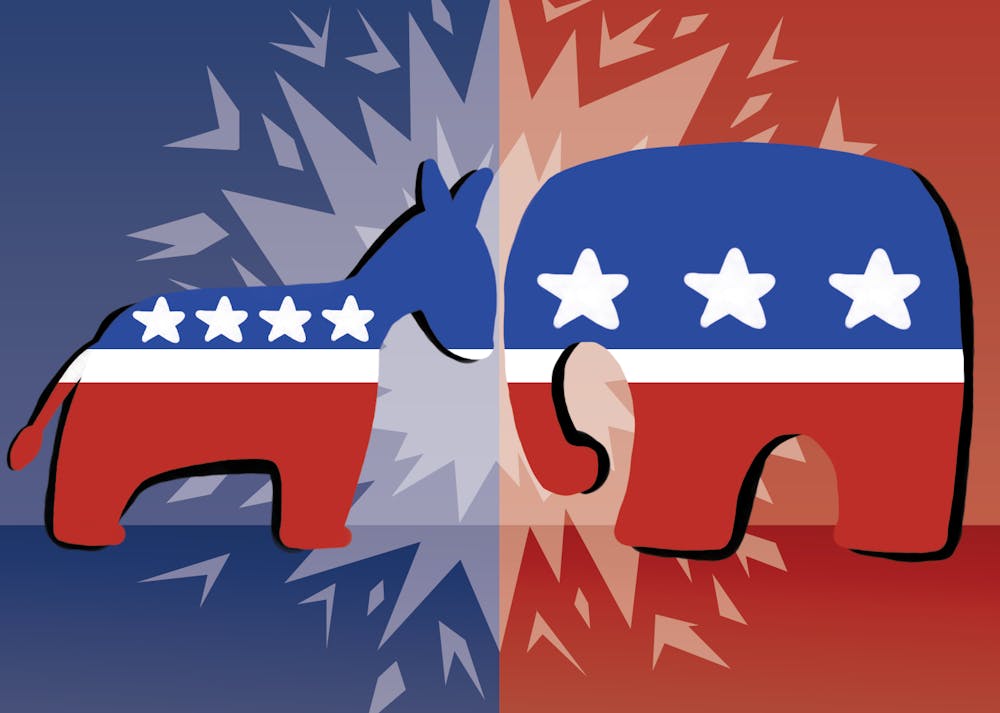At mention of the word "politics," there always seems to be a collective groan that follows. The term has acquired a negative connotation after the past few election cycles, leaving many people withdrawn from any sort of political discussion.
According to Pew Research Center, the country's polarizing politics have stopped nearly half of U.S. adults from discussing political and election news with someone because of something they said.
This movement in polarizing politics is leading to the increasing prevalence of the term 'apolitical.' People who are apolitical often say things like, "I like to stay out of politics," "I don't enjoy politics," or my personal favorite, "politics don't affect me."
The ability to disengage from politics is a luxury. Many people are not so fortunate to be able to completely disassociate from political developments.
Due to the pandemic, more than 50 million people in the U.S. may experience food insecurity. In 2019, 34 million Americans lived in poverty, over 500,000 were homeless and more than 82 million workers 16 and older were paid hourly rates. These people care about politics.
In recent months, more evidence has unveiled racial and ethnic minority groups are being disproportionately affected by COVID-19 due to issues such as poverty and low healthcare access.
In 2019, 54% of those who died as a result of police violence and whose race was identified, were people of color, compared to 50% in 2014. These issues have gained public attention through the Black Lives Matter movement.
Politics matter to all of these people affected, and they are using their right to protest in political matters to see change.
Why do these people care about politics? Because the way we live our lives is political. We live in a democratic society where the ability to participate in the political process is crucial.
Makenzie Tyson, a junior studying political science and justice studies, also on the BridgeASU Events Committee, believes political participation is vital to get anything accomplished.
Tyson said the famous quote from Pericles, "Just because you do not take an interest in politics doesn't mean politics won't take an interest in you," inspires her activism.
"This quote should serve as a reminder to those who sit comfortably and disassociate themselves from politics that not only is engagement important, but that it can be a matter of life or death for many individuals," Tyson said.
If you relinquish your right to participate in the political process, it doesn't mean important issues will get solved without your input. It simply means you are giving up your rights to participate, resigning yourself to an outcome someone else will decide for you.
Simple steps to engaging more in politics are educating yourself — an action made simpler by access to reliable information online — and engaging in community events.
"The greatest recommendation I could give anyone, especially students, is to get involved with current events," Tyson said. "It is important that we hold ourselves and our elected officials accountable for unjust acts."
Students can start off small by joining clubs, doing research or finding an issue affecting them directly. This could be as simple as potholes in your neighborhood consistently complicating your route to work. What can you do about this?
First, look into the issue and contact local organizations. Local politics are just as important as national. Attend a town hall meeting, call a representative and become involved, but make sure your actions support your awareness.
One advantage students have in the process of becoming more politically engaged is access to numerous political organizations on campus.
"We host open discussions on current events to seek new perspectives and share our own thoughts with the main goal of creating a safe space where all students feel like they are heard," Tyson said of BridgeASU.
Many people refrain from political participation because they don't want to be associated with a specific party. However, there is a huge difference between political affiliation and political participation.
People don't need to join a political party or side with a perspective; simply understanding the importance of our political system and finding issues important to you can increase engagement.
The first step to political participation is education, but the steps following involve actions like engaging in respectful conversation about politics, staying informed on political news and sharing your thoughts and concerns with politicians who represent you.
The more people become engaged, the more power they have to come together to advocate for progress in the issues they care about.
Reach the columnist at atretsch@asu.edu or follow @alexistretschok on Twitter.
Editor’s note: The opinions presented in this column are the author’s and do not imply any endorsement from The State Press or its editors.
Want to join the conversation? Send an email to opiniondesk.statepress@gmail.com. Keep letters under 500 words and be sure to include your university affiliation. Anonymity will not be granted.
Like The State Press on Facebook and follow @statepress on Twitter.
Continue supporting student journalism and donate to The State Press today.




